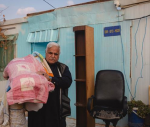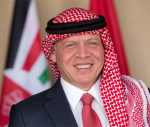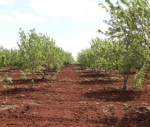You are here
University of Jordan strategic studies centre places first among regional think tanks
By JT - Jan 31,2019 - Last updated at Jan 31,2019

In this undated photo, the entrance of the Centre for Strategic Studies at the University of Jordan can be seen (Photo courtesy of Facebook)
AMMAN — A report released by the University of Pennsylvania has recently ranked the University of Jordan’s Centre for Strategic Studies (CSS) as the top think tank in the MENA region for the third year in a row.
The report, which analyses 6,291 centres from around the world and has been released annually since 2007, also placed the CSS at number 128 internationally among non-US think tanks, maintaining its rank from last year, according to a joint statement sent to The Jordan Times.
The study classifies research centres along fields of study, as well as regionally and internationally.
The statement added that the CSS was ranked 52nd internationally among non-US centres in the field of defence and national security, and 36th in the field of foreign policy and international relations, the latter of which is an improvement of five places over last year’s ranking.
The report also analysed six other think tanks from Jordan, five of which are Jordanian and ranked regionally, including Al Quds Centre for Political Studies (39th), the Arab Thought Forum (41st), Al Rai Centre for Studies (73rd), the Arab Institute for Security Studies (74th) and the Royal Institute for Inter-Faith Studies (86th).
Regionally, the study encompasses Arab countries, Israel, Turkey, Cyprus and Iran. An Israeli think tank ranked second regionally, followed by the Lebanese think tank, the Carnegie Middle East Centre and an Egyptian think tank, Al Ahram Centre for Political and Strategic Studies.
The statement said that the report reflects the growing importance of thought and study centres which work on bridging the gap between knowledge and public policy, adding that Arab centres are continuing to improve and achieve prominence on the list, despite modest international rankings.
According to the statement, the low percentage of funding dedicated to scientific research in Arab countries is the main obstacle hindering Arab centres ability to work and produce studies.
Related Articles
AMMAN — The Centre for Strategic Studies (CSS) at the University of Jordan (UJ) was ranked first among research centres and think tanks in t
AMMAN — The Centre for Strategic Studies (CSS) at the University of Jordan (UJ) ranked the top think tank in the Middle East and North Afric
AMMAN — For the second year in a row, the Centre for Strategic Studies (CSS) at the University of Jordan (UJ) topped the list of “Distinguis
















